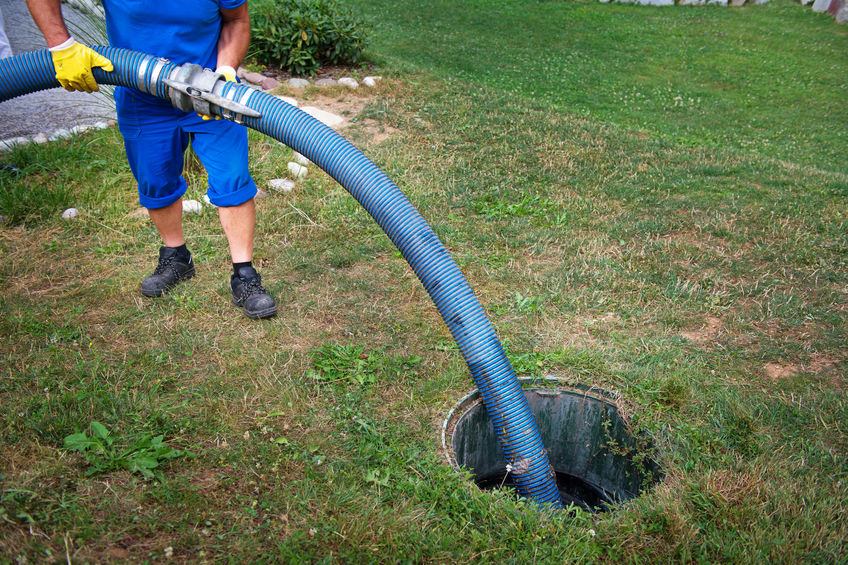
19
A septic tank is a vital component of a home's wastewater management system, responsible for treating and disposing of household sewage. However, when a septic tank backs up into the home system, it can lead to unpleasant odors, plumbing issues, and potential health hazards.
One of the primary reasons for septic tank backups is overloading the system. This occurs when there is an excessive amount of water entering the tank within a short period. Everyday activities such as doing multiple loads of laundry in a short time, taking long showers, or running the dishwasher frequently can overwhelm the septic tank's capacity. To prevent overloading, homeowners should be mindful of their water usage and implement water conservation practices.
Regular septic tank pumping is crucial for maintaining a healthy and functional system. Over time, solid waste accumulates in the tank, reducing its capacity and hindering proper wastewater treatment. Without routine pumping by a professional septic company, the tank can reach a point where it overflows, causing backups into the home. Homeowners should adhere to recommended pumping schedules to prevent these issues and ensure the longevity of their septic systems.
Septic tanks are not immune to wear and damage, especially in older systems. Cracks, leaks, or structural issues can compromise the tank's ability to contain and treat wastewater properly. Regular inspections by a qualified septic company can identify potential problems early on, allowing for timely septic tank repair. Ignoring signs of damage can lead to more significant issues, including backups into the home.
The proper installation of a septic tank is essential for its optimal function. If a septic tank is not installed correctly, it may not be able to handle the household's wastewater load. Improper installation can result in uneven settling, leaks, or insufficient treatment capacity, leading to backups. Homeowners should ensure that septic tank installation is carried out by experienced professionals to avoid these issues.
When faced with a septic tank backup, homeowners must take immediate action to prevent further damage and restore the functionality of the system.
In the event of a septic tank backup, it is crucial to contact Charlotte Septic Pros promptly. Our experts have the knowledge, tools, and experience to diagnose the cause of the backup and recommend the appropriate course of action, whether it's septic tank pumping, repair, or replacement.
Septic tank pumping is a fundamental maintenance task that removes accumulated solids from the tank, preventing backups and ensuring efficient wastewater treatment. Regular pumping not only extends the life of the septic system but also reduces the risk of backups and associated inconveniences.
In cases where the septic tank has sustained damage, timely repair is essential. Professional septic tank repair services can address issues such as cracks, leaks, or structural damage, restoring the tank's functionality and preventing further backups.
Understanding the causes of septic tank backups is key to maintaining a healthy and efficient wastewater management system. Homeowners should prioritize regular septic tank pumping, enlist professional septic company services for inspections and repairs, and ensure proper installation to prevent overloading and damage. By taking these proactive measures, homeowners can safeguard their homes from the inconvenience and potential health risks associated with septic tank backups.

22
Can Bacteria Additives Eliminate the Need for Pumping? If you own a home with a septic system, you’ve probably seen…
Read more
12
A single slow drain in your home can feel like a minor inconvenience. Maybe the sink takes a little longer…
Read more
05
Are Slow Drains a Septic Issue or Just a Clog? Slow drains are one of those household problems that start…
Read more
02
What Septic Service Techs See That Homeowners Miss Most homeowners only think about their septic system when something goes wrong.…
Read more
21
Simple Habits That Protect Your Septic System A well-functioning septic system does its job quietly, but the moment something goes…
Read more
14
Pump Now or Pay Later: The Real Cost of Skipping Maintenance A properly functioning septic system is easy to forget…
Read more
11
Why Your Septic System Always Acts Up at the Worst Time Homeowners often feel that septic problems strike at the…
Read more
04
Early Warning Signs Your Septic Tank Needs Pumping For homeowners who rely on a septic system, routine maintenance is not…
Read more
29
Why Does My Septic System Smell Fine One Day and Terrible the Next? If you own a home with a…
Read more
19
Is Your Septic System Overdue? Simple Home Checks You Can Do Today For many homeowners, the septic system is a…
Read more